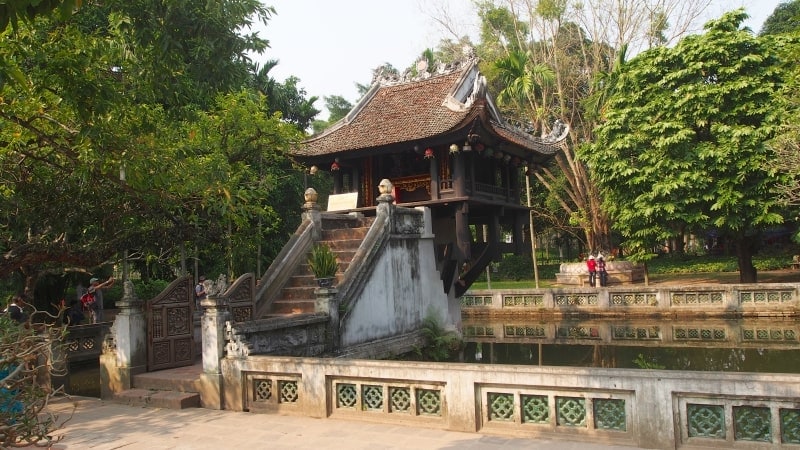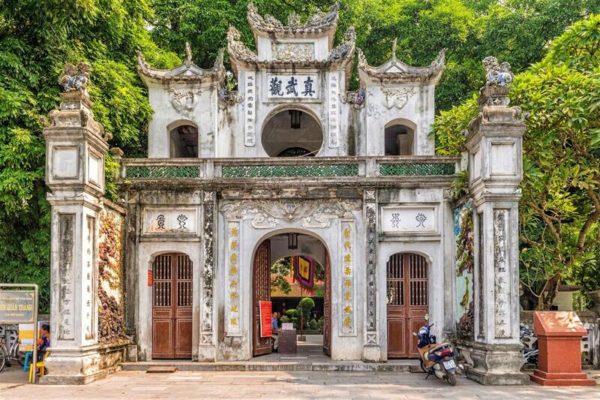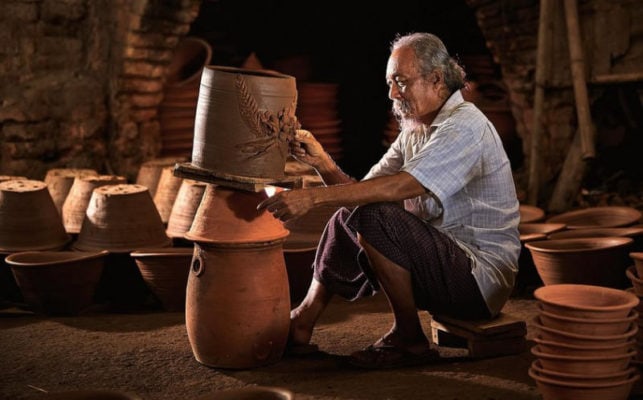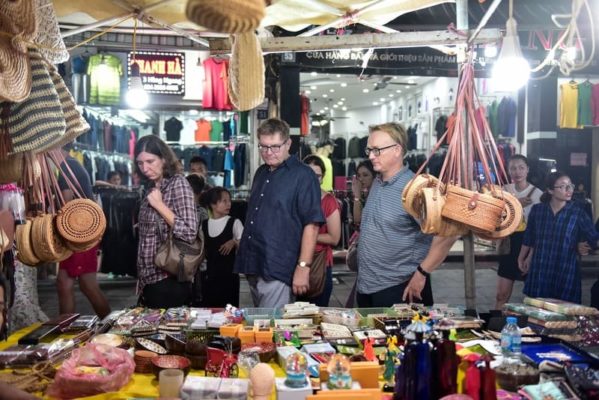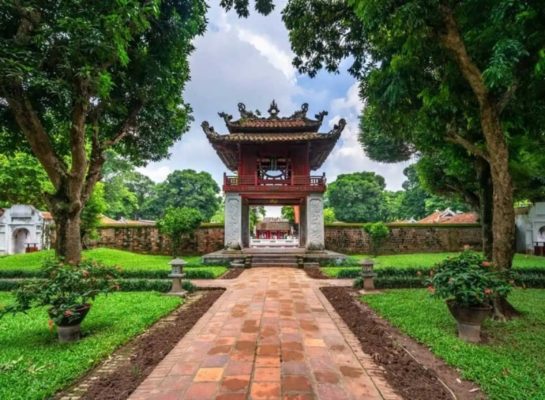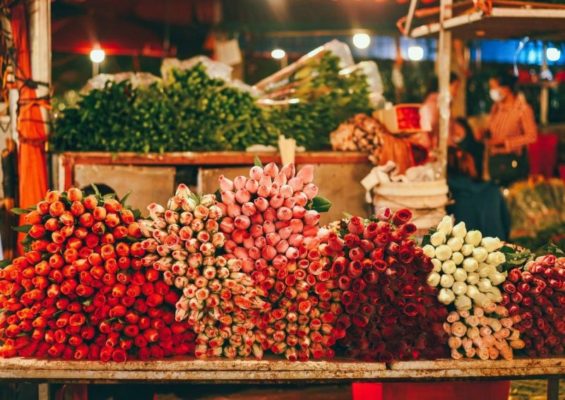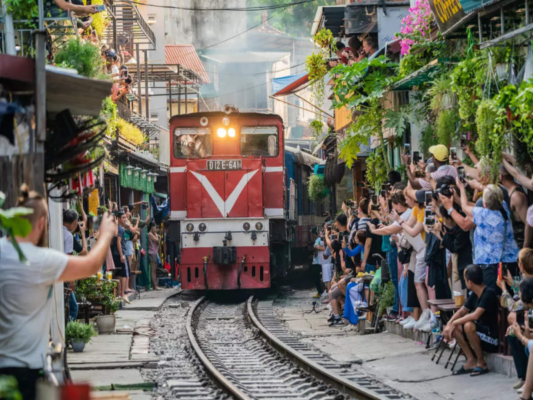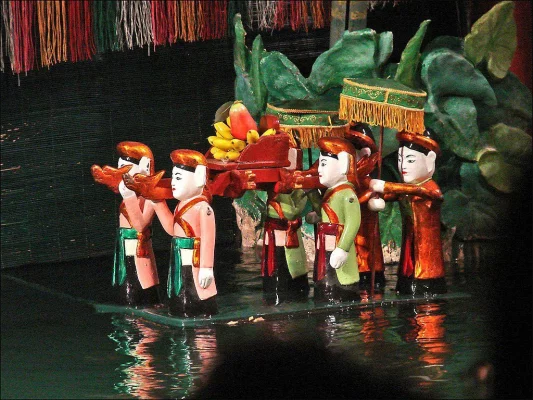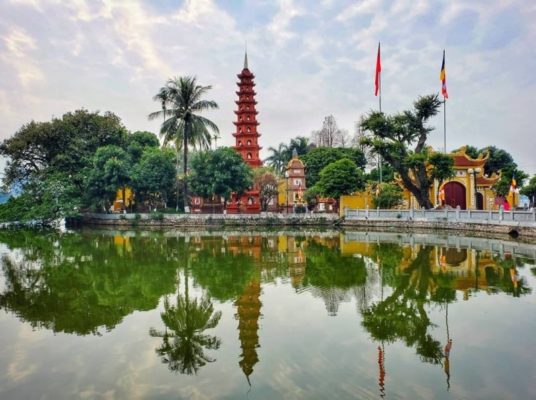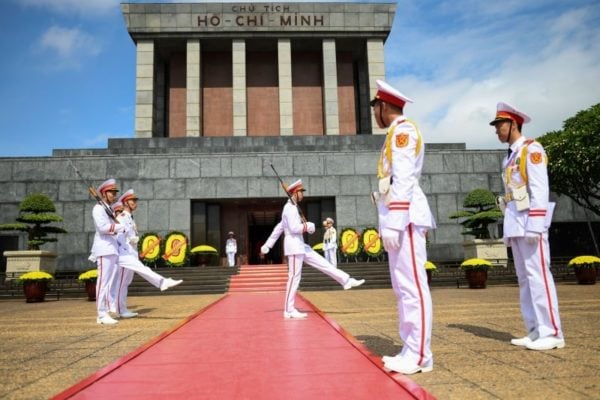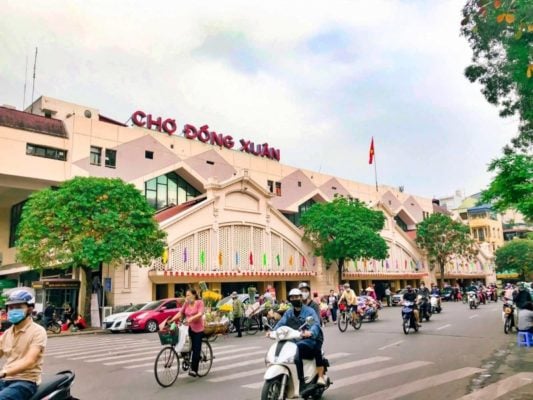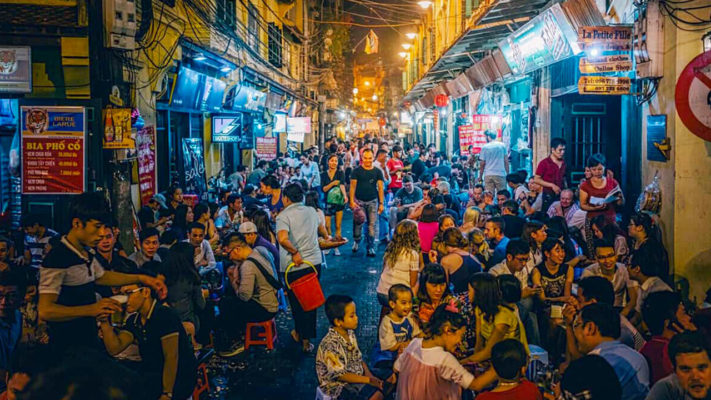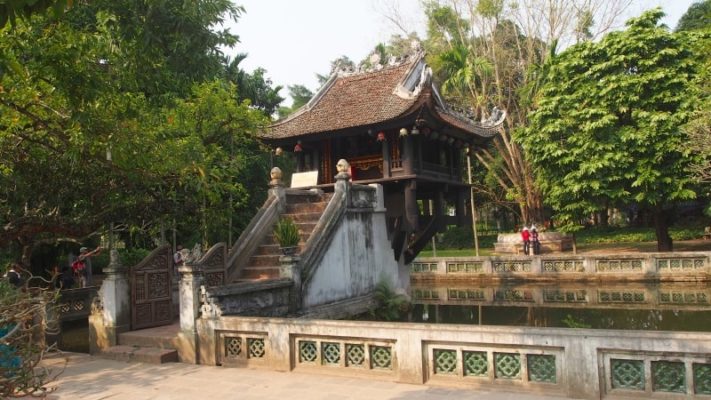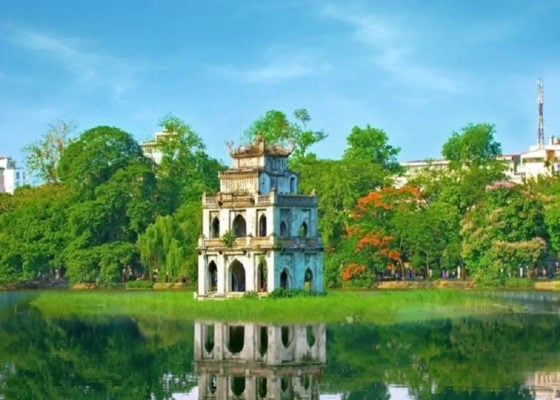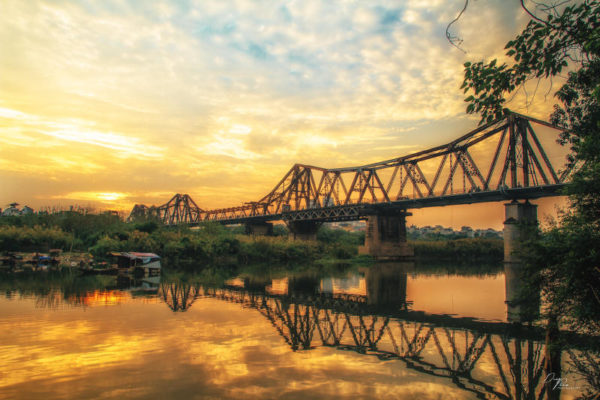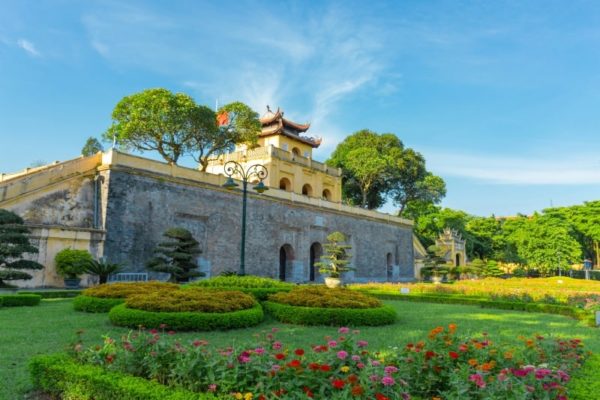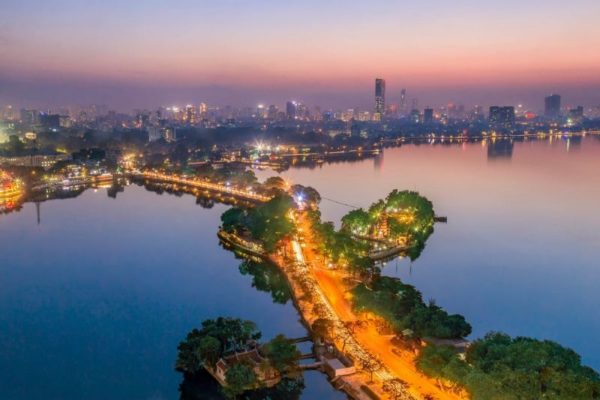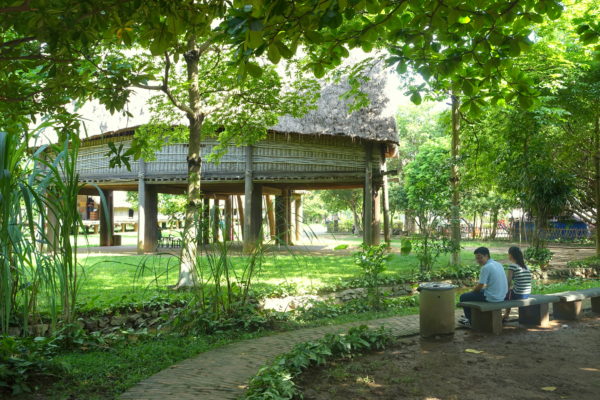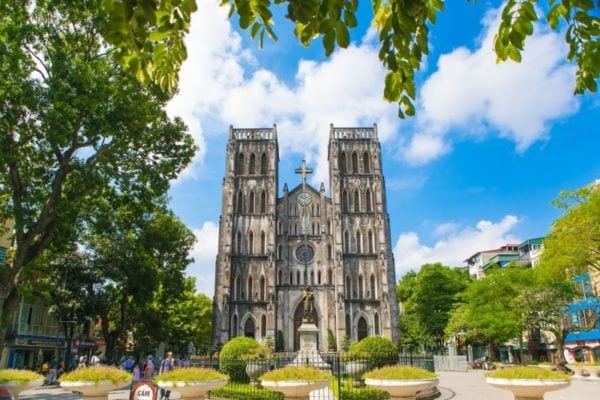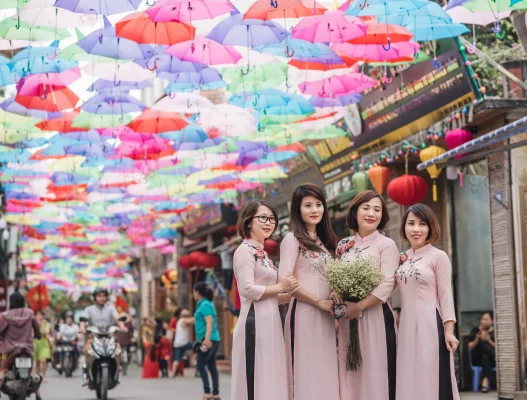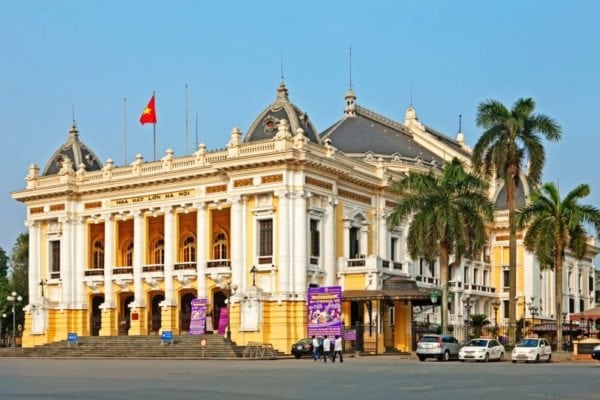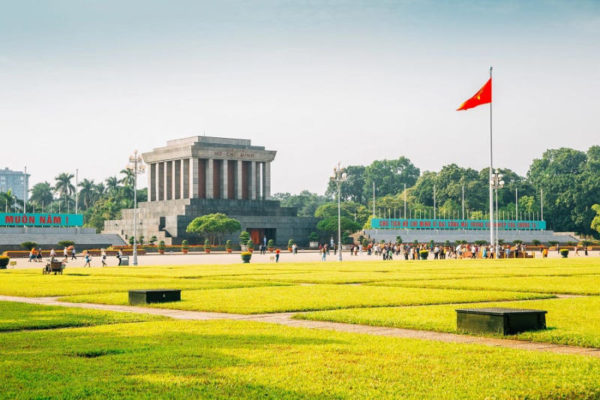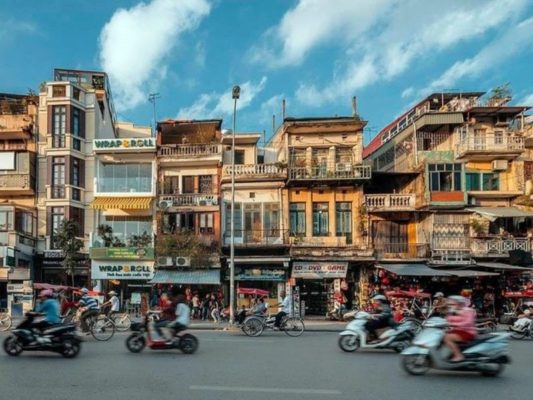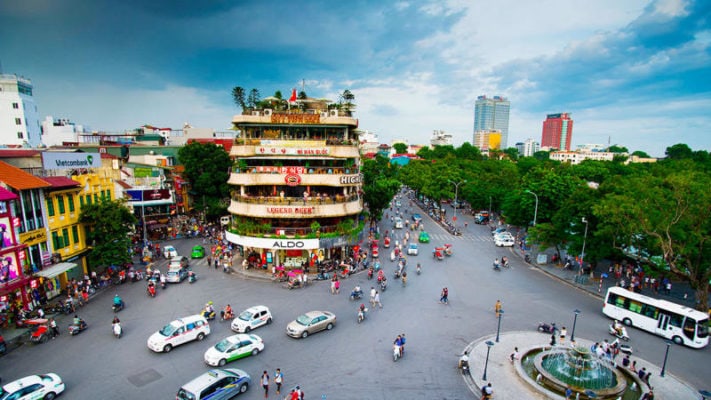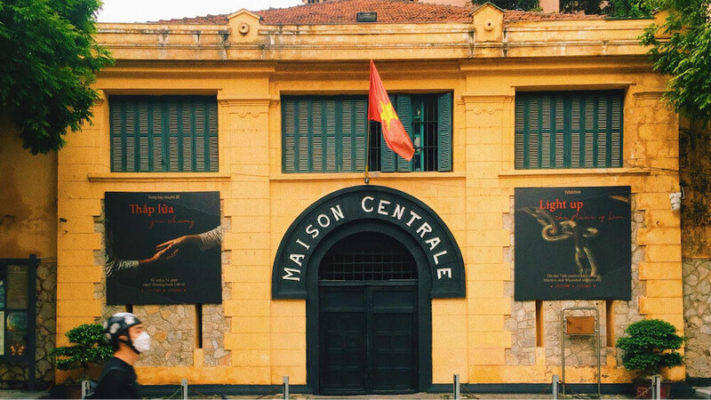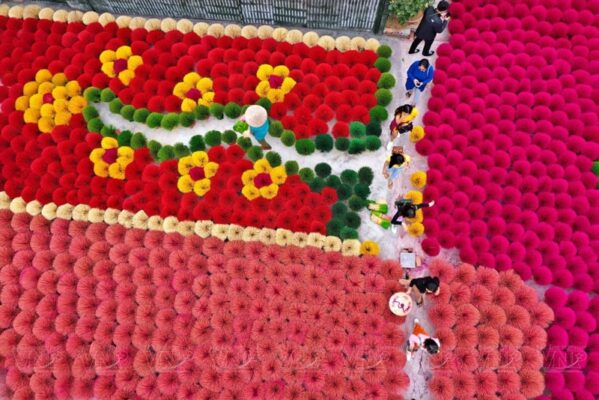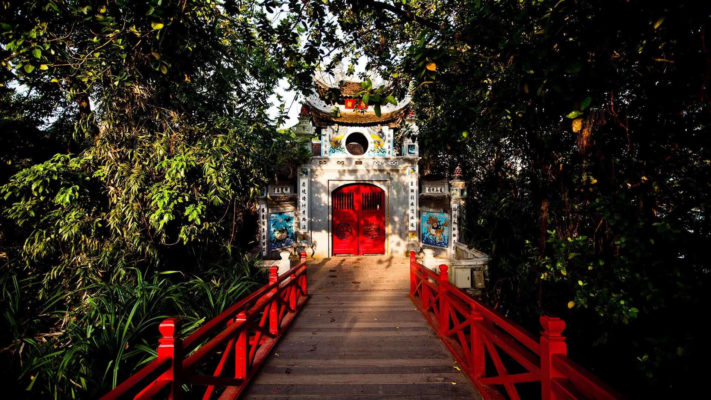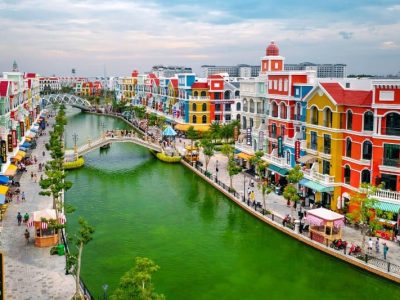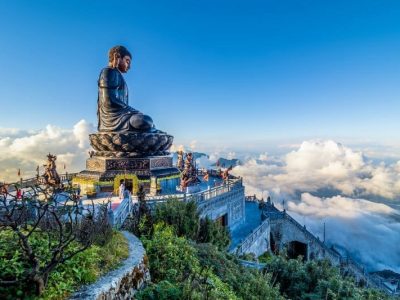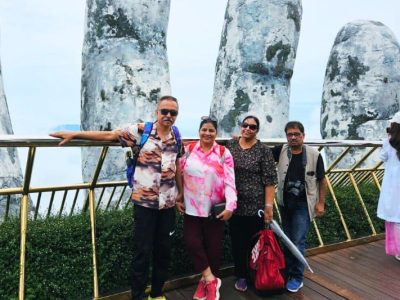One Pillar Pagoda is one of the top-notch attraction destinations in Vietnam, especially for travelers who have strong beliefs in Buddhism. With its unique and impressive architecture, this pagoda harbors plenty of important traditional and cultural values in Vietnamese. It will be a great chance for you to discover more about Vietnamese history.
In our blog, we will overview essential information about One Pillar Pagoda architecture, history, as well as suggest some useful guides. Don’t miss this article to have a good preparation for your journey.
History of One Pillar Pagoda
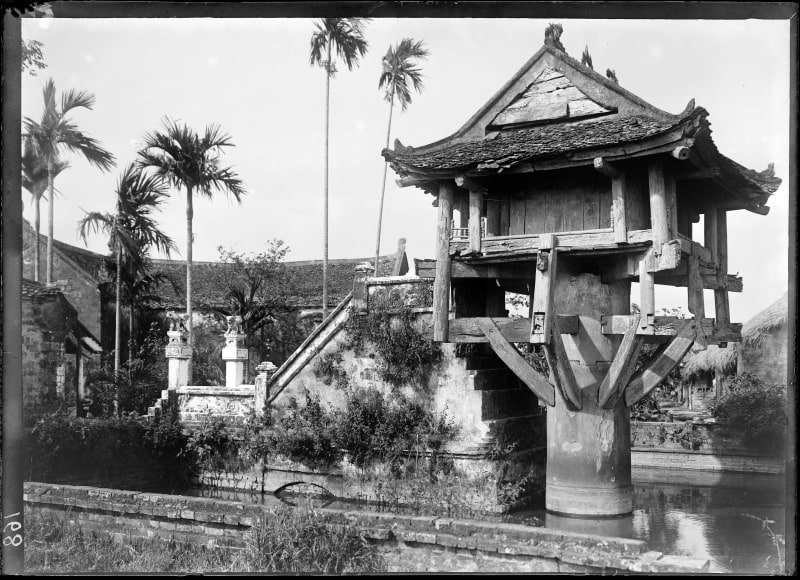
Archaeologists indicated that One Pillar Pagoda was built during the Ly Dynasty, particularly between 1028 and 1054. At that time, Emperor Ly Thai Tong decided to construct this pagoda to honor the female Buddhist goddess – Quan The Am Bo Tat.
One of the most outstanding features is that there is a holy place shaped like a lotus flower, as a representation of wisdom, and purity of Buddhism and Confucianism. This proves the important role of religion in Vietnamese people’s lives thousands of years ago.
During the war in 1954, One Pillar Pagoda was pulled down by invaders’ bombs, and then renovated immediately based on the Nguyen Dynasty’s drawings. Although the pagoda doesn’t keep its original beauty, it has been a valuable heritage of Vietnamese history and culture.
>> Read more: 7 Best Temples In Hanoi: Detailed Reviews 2026
Architecture of One Pillar Pagoda
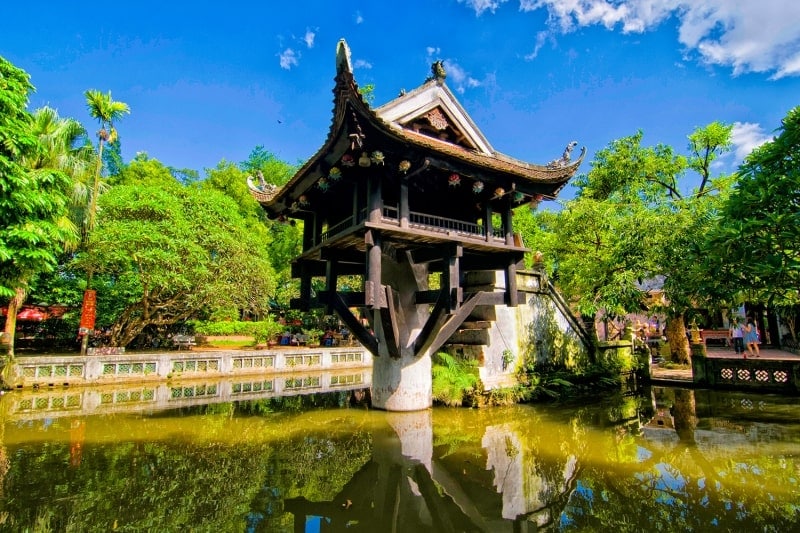
One Pillar Temple architecture is one of the most impressive inspirations of many poets and writers in Vietnam as well as in the world. Below are four impressive features of this pagoda in both local and foreign visitors’s eyes when visiting the Vietnam capital.
Lotus Station (Lien Hoa Dai)
Lotus Station has exclusive architecture, with eight wooden beams and a large stone pillar, which represent a lotus standing emerging from a dirty environment. All joints were designed and connected perfectly, making this architecture exceedingly sturdy when standing in the middle of Linh Chieu Lake.
On the Lien Hoa Dai’s roof, visitors can see an image of a “double dragon adoring the moon”- is exquisitely carved, bringing a feeling of the sacredness of the pagoda. Additionally, the red bricks covered in four curved corners express special meanings for the prosperous development of the Vietnamese nation.
Three-arched-entrance Gate (Tam Quan Gate)
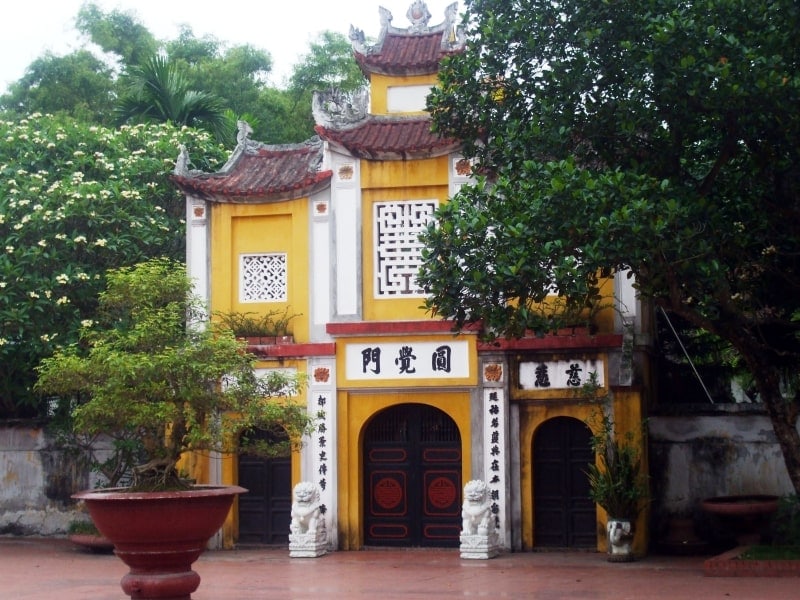
While you visit One Pillar Pagoda, you will come across a special gate called Tam Quan. It lies in front of the pagoda and is one of the special highlights in visitors’ eyes during their journey here.
Tam Quan Gate was decorated with a horizontal painting depicting, carved with the outstanding three words “Dien Huu Pagoda”. In the past, the gate’s size was relatively small, only serving the religious activities of monks. However, Tam Quan Gate has been recently expanded and renewed to support the demand of visitors from around the world.
The Stairs Leading to The Main Hall
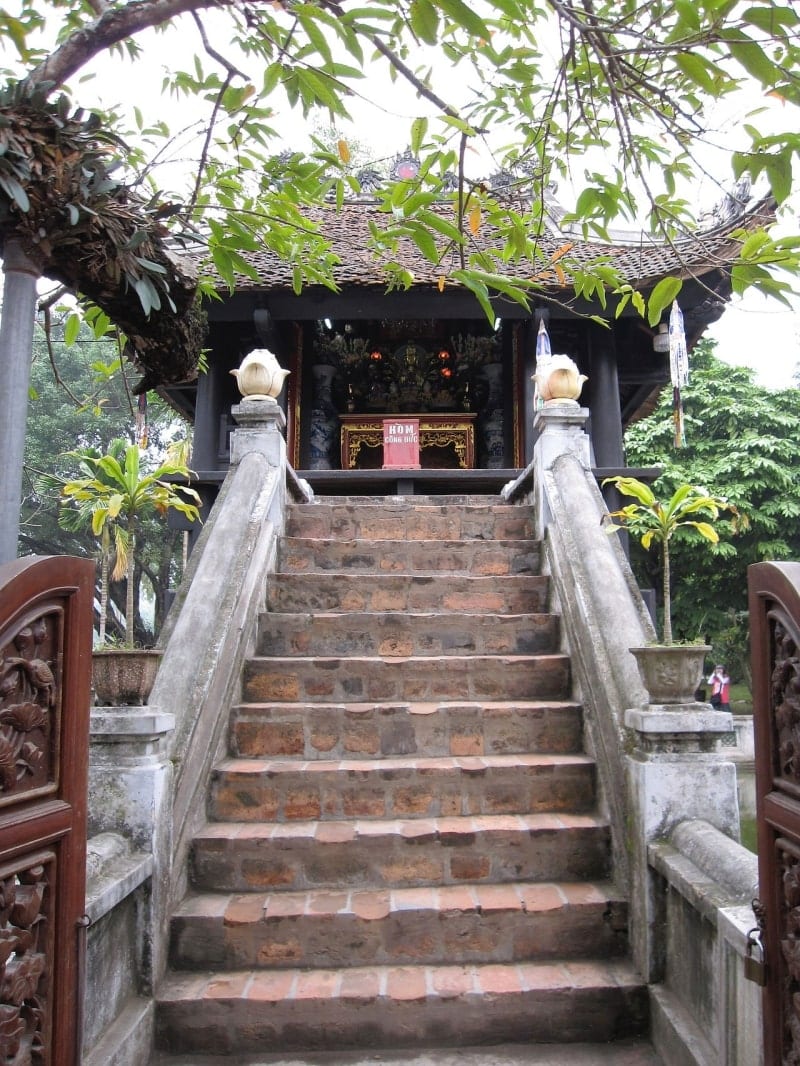
To visit Lien Hoa Dai, travelers need to move through 13 steps, with each width of 1.4 meters. In Eastern culture, the number 13 is considered a wish for the “fertility and prosperity” of a nation. That’s why Emperor Ly Nha Tong especially required the stairs designed in this structure.
The main hall is a place to worship Quan The Am Bo Tat, with a gilded statue of Budda sitting on a lotus, surrounded by worshiping objects such as flowers, candles, and fruits. All of these things express a strong respect for Buddhism, being worthy of the name of the most famous Buddhist temple in Vietnam.
Bodhi Tree
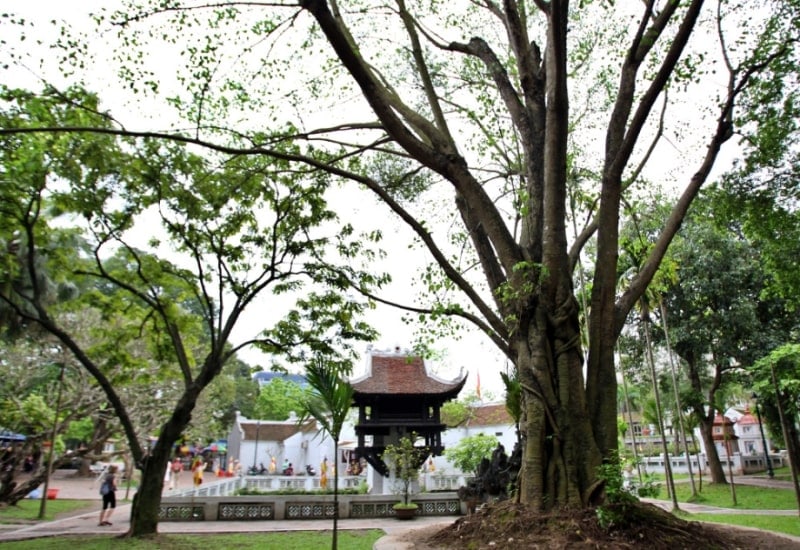
The Bodhi tree is a special gift from the President of India Rajendra Prasad, expressing a strong friendship between Vietnam and India. The tree was grown in the One Pillar Pagoda after the visit of President Ho Chi Minh to India in 1958. Up to now, the Bohhi tree has been developing in a large size, with lush green leaves and large branches. It is also an ideal place for visitors to sit down and relax during their journey to this pagoda.
Location
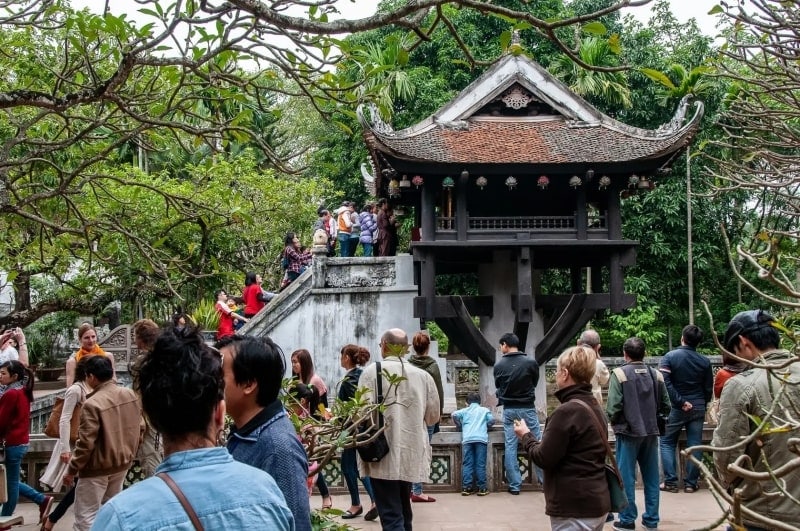
One Pillar Temple is situated in the park behind Ong Ich Khiem Street, Doi Can Ward, Ba Dinh District, which is around 3 kilometers from the center of Hanoi city. Nearby the pagoda, travelers can visit some other famous destinations such as the Ho Chi Minh Mausoleum, Temple of Literature, and Hoan Kiem Lake. This can bring you impressive experiences about our capital.
Entrance Fee
Foreign visitors need to pay around 1 USD/person for the One Pillar Pagoda entrance fee to begin a journey to admire its unique architecture. If you are a Vietnamese citizen, you can get to this pagoda with a free admission.
Opening Time
One Pillar Pagoda normally opens from 07:00 AM to 06:00 PM daily. However, the timetable to visit this destination can vary, depending on the opening time of other parts belonging to the Ho Chi Minh Mausoleum Complex. Thus, you should check a spectacular time carefully before deciding to go to this pagoda.
Best Time to Visit
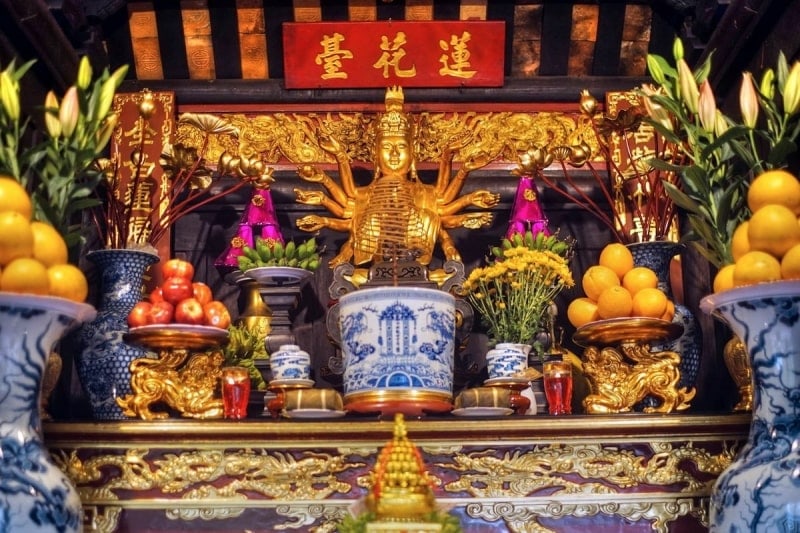
We highly recommend you pay a visit to One Pillar Pagoda from August to November. It is an ideal time for you to witness the scent of lotus blossoms in full in Lien Hoa Dai. Moreover, there will be a giant celebration for “Vietnam National Day” on September 2nd annually in Ho Chi Minh Mausoleum. It is a great chance for you to discover more about Vietnamese people’s culture. Being one of the best places to visit in Hanoi, Mot Cot Pagoda is a wonderful destination to experience the tranquil ambiance from the bustling life pace of the city.
How to Get There
If you have a car or motorbike, you can drive to the Ho Chi Minh Museum and park your vehicle in one of 2 parking lots, including Ngoc Ha Street or Ong Ich Khiem Street. In the situation of moving by bus, we recommend you to follow a few routes passing through Ba Dinh Square like 22, 33, 09, 50, or 45 to drop in One Pillar Pagoda. Remember to get off the bus at 18A Le Hong Phong bus station to easily walk to this temple.
>> You can read: Top 10 Famous Temples in Vietnam for Indian Travelers
Travel Tips
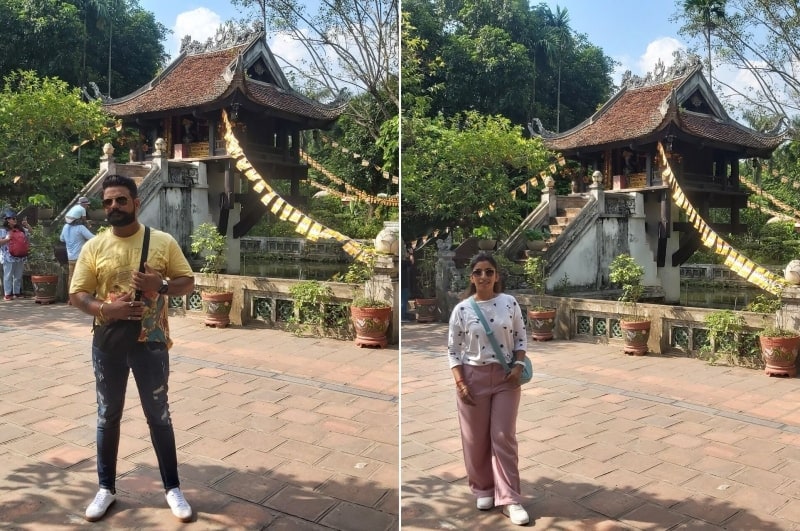
During your journey to One Pillar Pagoda, visitors need to follow some rules to express respect for the Buddhist religion as well as the cultural values of Vietnamese people. In particular:
- Always line up to burn incense
- Keep silent during moving and visiting the pagoda
- Wear full-length clothes to respect native culture
- Check the pagoda’s opening hours
- Bring a water bottle in case you can be thirty during a visit
- Don’t litter or throw away anything on the pagoda’s campus
Conclusion
Our blog has reviewed the outstanding features of One Pillar Pagoda and suggested essential tips during your journey to this destination. If you want to know more about Hanoi tours, including visiting One Pillar Pagoda or Ho Chi Minh Mausoleum, let’s contact our Vietnam package tour. We hope you have a wonderful time in our country.
OTHER ATTRACTIONS IN HANOI
ITINERARY WITH ONE PILLAR PAGODA

